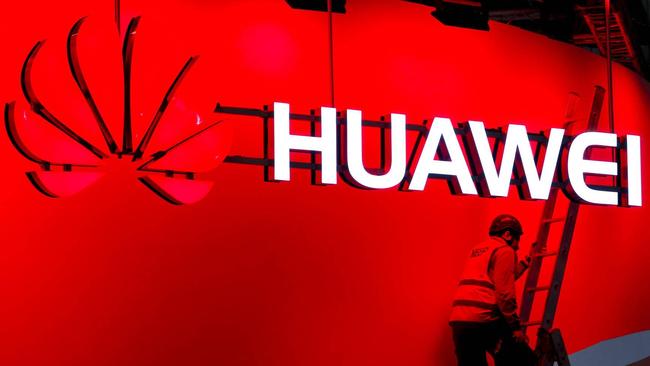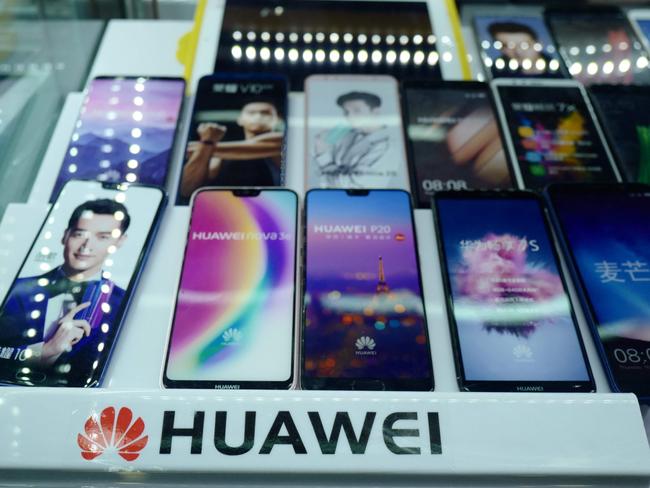National Security concerns to shape Australia’s 5G network
FEARS over espionage have prompted the Australian government to spring into action — with the Prime Minister set to make another big call.
CONCERNS harboured by Australia’s intelligence community over Chinese telcos engaging in espionage on behalf of the Chinese Communist Party has prompted strong action from the government.
A report in the Financial Review this morning claims Chinese telco Huawei is likely to be excluded from providing equipment for our soon-to-be-built 5G wireless network on national security grounds.
According to the report, Prime Minister Malcolm Turnbull is expected to announce the final decision in the near future.
While Huawei was once more of a copycat company mimicking technology available in the West, it has poured huge sums of money into research and development in recent years and has built itself into a leading provider of telecommunications infrastructure.
But as a Chinese company, Huawei (which was founded by former People’s Liberation Army engineer Ren Zhengfei) is obliged to comply with government demands and could be compelled to gather intelligence on its behalf. That is the concern that lies at the heart of any decision made by Australian officials.
“It’s hard to see how compromising your telecommunications network is in the national interest,” one source told the paper.
According to Huawei Australia, over 50 per cent of Australians already use a Huawei product for some part of their daily telecommunications needs.
The news comes a day after it was announced that Australia intervened to stop the Solomon Islands signing a deal with Huawei to built a high-speed undersea internet cable, which would have given a huge boost to China’s influence in the South Pacific.
After diplomatic pressure was applied, Australia displaced the Chinese telco to secure the deal to build the link between Australia and the Solomon Islands that will also connect Papua New Guinea to Australia.

‘WE ACCEPT THE RULES OF EVERY COUNTRY’
Huawei Australia chair John Lord said he was surprised by the media reports this morning and doesn’t think bids by Huawei to help build parts of Australia’s 5G network will be rejected.
“I’m a little surprised although I don’t believe there’s any truth in them. As far as we’re concerned we’ve not been advised of that and we’re still talking openly with government,” he told the ABC’s RN Breakfast this morning.
“Government officials have raised no real concerns other than to seek more information from us about the way 5G is being formed, its similarities to 4G and how Huawei intends to take 5G forward,” he said. “So we’re not really getting any concerns expressed to us at all, other than reports in the media.”
Mr Lord also rejected the notion that Huawei would act as a vehicle for the Chinese government while operating in a foreign country.
“We accept the rules of every country we operate in,” he said.
A spokesperson for Huawei Australia confirmed to news.com.au that the company still expects to be involved in helping to build our forthcoming wireless network.
“Huawei is member of the Government’s 5G working group and has productive discussions with the Government on 5G technology. We have not been informed of any decision to exclude us from 5G networks,” they said.
“In a vast country like Australia telecommunications is vital. Consumers and businesses want fast, affordable and reliable services, and Huawei helps to provide those services.”

YOU CAN NEVER BE TOO CAREFUL
Huawei has become the world’s third largest smart phone manufacturer in recent years but the company has continually faced headwinds in its expansion plans due to its close links with the Chinese Communist Party.
Earlier in the year, a bill introduced in the US to ban government employees from using a device made by Huawei or its fellow Chinese smartphone maker ZTE. While similar restrictions have been raised in Australia.
Back in 2008 Australian intelligence agencies ensured Huawei missed out on being awarded a contract to be a primary vendor for the National Broadband Network.
For the most part, such moves are seen as necessary precautions. Claims that Huawei engages in any espionage activities on behalf of Beijing are “factually tenuous and unproven,” Nigel Phair, the director of the Canberra-based Centre for Internet Safety told news.com.au in January.
“(But) the reality is in the modern day of cyber security and espionage, you can never be too careful,” he said.
Governments need to approach such issues from “a risk management perspective … I don’t think you can be too cautious,” Mr Phair added
Concerns over Chinese telcos has been simmering for years — making headlines when former CIA head Michael Hayden said in 2013 that Huawei represented an “unambiguous” threat to the US and Australia.
In January, US policymakers urged the country’s telcos to cut commercial ties with the Chinese tech giants altogether, including any involvement in 5G development, Reuters reported.
Although there has been no evidence, and steadfast denials from Huawei that the Chinese tech company eavesdrops on behalf of Beijing, for a number of years the US has prohibited Huawei from bidding for government contracts out of fears for national security.




